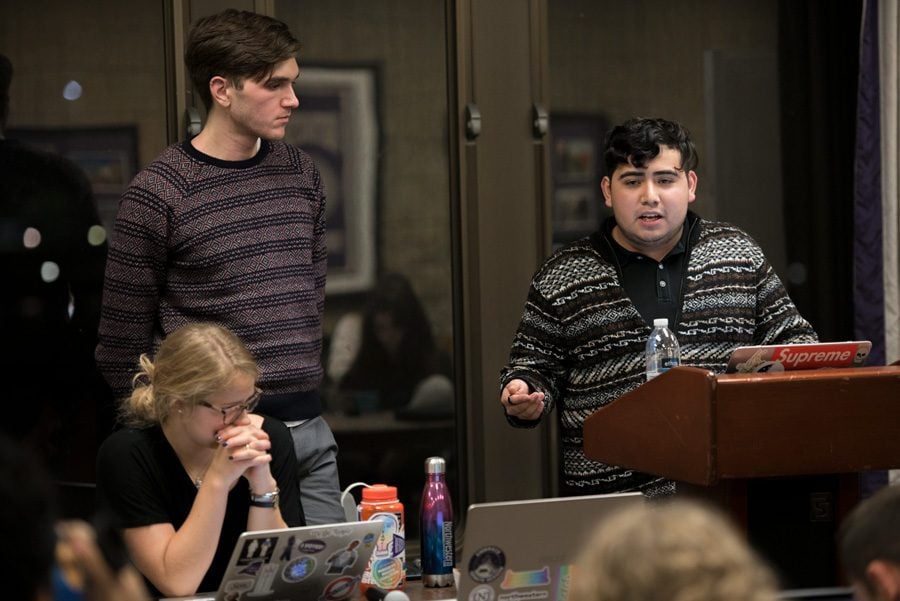ASG hosts town hall for students to discuss recent changes to Fall Quarter plans
Evan Robinson-Johnson/Daily Senior Staffer
Daniel Rodriguez and Campbell Schafer at a previous ASG meeting. Rodriguez and Schafer both contributed to the original resolution.
August 31, 2020
Students brought up concerns around the uncertainties of Fall Quarter at a town hall hosted by Associated Student Government Monday evening.
The town hall was organized after the administration announced recent changes to the fall, including a decision to go remote for first- and second-year students.
First- and second-year undergraduates were only given nine days’ notice before they were supposed to move on-campus that they would not be able to come back, with limited exceptions. The late-notice decision has already prompted questions about housing insecurity, health care resources, education accessibility and equity, Daniel Rodriguez, executive officer of justice and inclusion, said.
“A lot of people were generally upset about how last-minute a lot of this information is, and also just how vague it is,” Rodriguez, a SESP junior said. “For it to come out so vaguely and students not being able to have a forum to be able to ask admin questions directly was kind of a slap in the face.”
At the end of June, Residential Services emailed undergraduates who signed a housing contract for the 2020-21 academic year that they would be able to release themselves from their contracts and live off-campus in the Evanston area. Now, Rodriguez said the administration is barring many of these students from accessing any on-campus housing or resources such as COVID-19 testing.
Some underclassmen, Rodriguez said, were already on their way to campus, or days away from making the trip to Evanston, when they received University President Morton Schapiro’s email Friday evening. The changes, he said, will affect students of marginalized identities the most.
“I would say it directly (affects) most students that are freshmen and sophomores, but also marginalized students who traditionally have done this unpaid labor, this undone organizing, this undone community support for Northwestern,” Rodriguez said.
Email: [email protected]
Twitter: @isabellesarraf
Related Stories:


